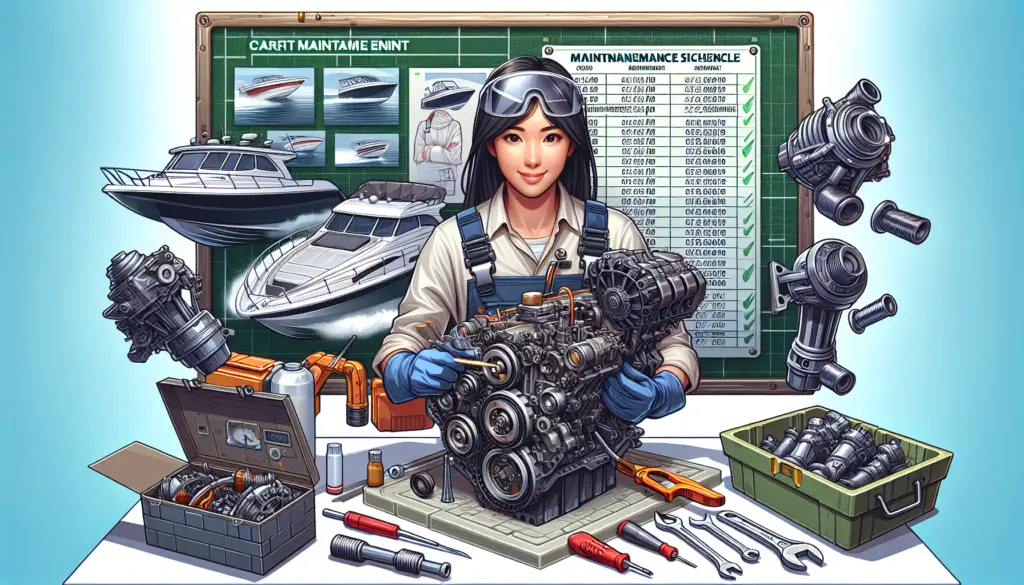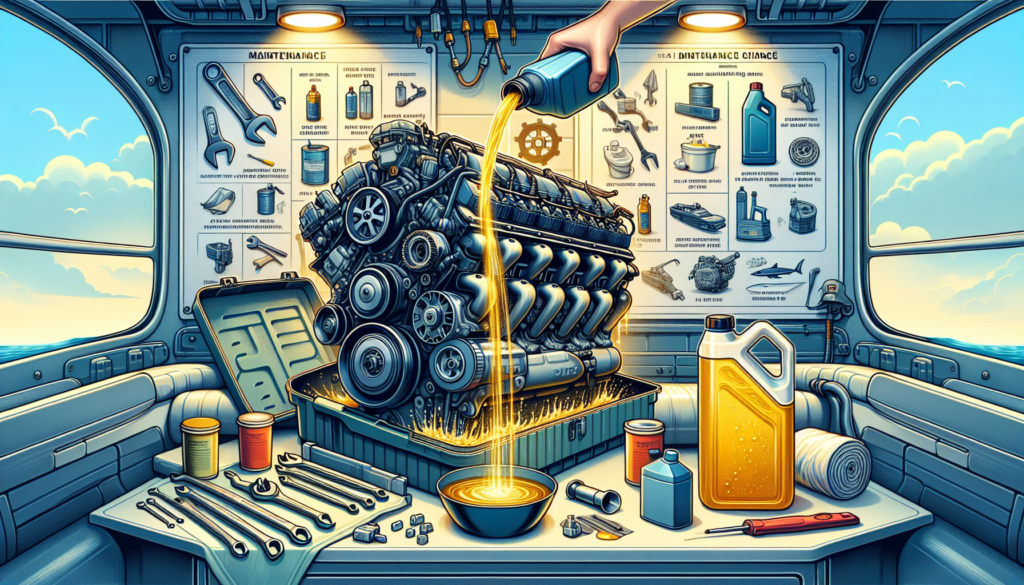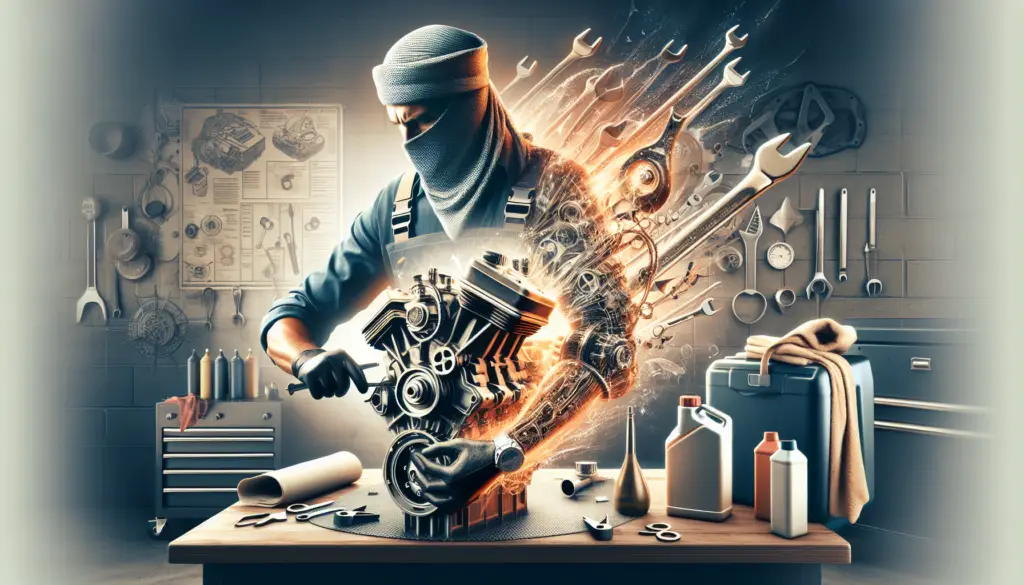Navigating through the vast waters, whether you’re basking in the Mediterranean sun or steering through the Amazon River, your boat engine is pivotal to an unforgettable experience. The lion’s share of this pleasure lies in your boat’s long-term reliability. “The Best Boat Engine Maintenance Schedule for Long-Term Reliability” offers you a boat engine maintenance schedule designed to ensure smooth running and exceeding reliability, saving you stress and unnecessary breakdowns while traversing the globe’s beautiful water bodies. The article provides useful insights into the regular checks, timely replacement of parts, troubleshooting techniques, and the optimal frequency of professional servicing.

Understanding the Importance of Regular Maintenance
Just like a car, a boat engine requires regular maintenance. If neglected, this can lead to decreased performance, higher fuel consumption, and even severe damage that can leave you stranded in the middle of the water. It’s fundamental to understand the importance of regular maintenance for the overall longevity and functionality of your boat engine.
Significance of regular boat engine maintenance
Maintaining a boat is about more than just keeping it looking nice. regular boat engine maintenance serves several crucial functions that can impact your boating experiences significantly. It ensures the smooth operation of the engine, enhances fuel efficiency, extends the life of the motor, and most importantly, it prevents breakdowns and serious damages that can be costly to repair.
How it contributes to long-term reliability
Regular maintenance keeps your boat’s engine in peak working condition. By tending to the small tasks such as oil changes and spark plug replacements, you can avoid bigger issues down the road. Over time, this careful attention contributes to the long-term reliability of your boat, ensuring that it’s ready to go whenever you are.
Potential risks of neglecting regular maintenance
Ignoring regular maintenance can lead to a multitude of issues. Minor issues can quickly turn into major problems, which could be expensive to fix. Over time, neglect can result in the total failure of your boat engine. Additionally, poorly maintained boat engines are less efficient and can pose a risk to your safety.
Daily Checks for Boat Engine
Daily maintenance checks are important to ensure the ongoing health of your boat engine. Here are the main checks you should perform on a daily basis:
Checking engine oil level
A reduction in oil levels could signal a potential leak or excessive consumption. Regular checking of the oil level is simple and vital for the smooth running of your engine.
Monitoring coolant level
Coolant levels need to be kept within the recommended range to maintain the engine temperature. A low coolant level can lead to overheating, causing serious engine damage.
Inspecting the belt tension
Loose belts can lead to inefficient engine operation and potentially harm other components. Make sure they are always at the correct tension.
Observing unusual engine noises
Unusual noises from your boat’s engine can be indicative of a problem. Monitor your engine regularly for abnormal sounds.
Examining transmission fluid
The transmission fluid should be checked for colour and level. Low or dirty fluid can affect your engine’s performance and transmission system.
Checking for leaks
Leaks can be a sign of potential damage. Check your boat daily for traces of oil, fuel, or coolant leaks.
Weekly Boat Engine Maintenance
Weekly maintenance helps prevent minor problems from becoming major ones. These are the tasks you should aim to complete every week:
Cleaning the engine compartment
Keeping the engine compartment clean avoids the build-up of grime and dirt which can hinder the performance of your engine.
Inspecting the engine mount
Regular inspection of the mount can prevent your engine from being unsettled, reducing vibration and noise.
Testing the engine’s battery
The battery is a crucial component of your boat’s engine. Routine checks will help prevent failures down the line.
Checking the fuel system for any leakage
Fuel leakage can lead to hazardous situations. Frequent checks can help you prevent potential accidents.
Monthly Checks to Ensure Boat Engine Health
Monthly checks go deeper than your daily and weekly maintenance tasks, focusing on components that don’t require constant attention but are still integral to the boat’s overall health.
Monitoring the exhaust system
An inefficient exhaust system can harm your engine’s performance. Regular monitoring of the exhaust can help identify potential issues.
Inspecting the propeller and hull
Damaged propellers or hull can lower your boat’s performance and cause long-term damage. Regular inspections can ensure they remain in great condition.
Verifying the functionality of spark plugs
Spark plugs should be checked and cleaned monthly to ensure they are functioning at their best. Replace any worn or damaged ones immediately.
Checking and replacing fuel filters
Dirty or clogged fuel filters can lead to engine failure. Check these regularly and replace when necessary.

Quarterly Maintenance for Your Boat’s Engine
This round of maintenance focuses on systems that require frequent attention to maintain optimal performance and health:
Replacing the engine oil
Just like in a car, old engine oil should be replaced with new oil on a regular basis to maintain the health of your boat’s engine.
Checking the ignition system
A faulty ignition system could leave you stranded. Quarterly checks should involve inspecting the distributor, adjusting the timing and checking the overall condition of the system.
Inspecting the cooling system
An ineffective cooling system can cause your engine to overheat. Regular checks ensure it is functioning as it should.
Servicing the carburetor
For a smooth and efficient running engine, the carburetor needs to be serviced and cleaned quarterly.
Biannual Checks for Optimal Functioning
Biannual checks ensure a thorough review of your boat’s key systems:
Replacing spark plugs
Spark plugs should ideally be replaced every six months to ensure optimal function and performance.
Lubricating moving parts
To prevent wear, enhance performance, and extend the life of moving parts, lubricate them regularly.
Checking and adjusting valves
Properly adjusted valves ensure your engine is running smoothly. Regular checks and adjustments are necessary for optimal operation.
Checking and replacing timing belts
Timing belts control the sequence of your engine and should be checked and replaced when necessary.

Annual Maintenance Tasks
Yearly maintenance ensures the long term performance and reliability of your boat’s engine:
Changing the lower unit oil
To ensure the lower unit operates correctly, its oil should be changed annually.
Inspecting and greasing all bearings
Bearings should be thoroughly inspected and re-greased each year to ensure they continue to work as they should.
Replacing the impeller
The impeller needs to be replaced regularly to keep your engine cool.
Fuel system inspection
The whole fuel system should be checked annually for leaks or other potential issues.
Retuning the engine
An annual tune-up will help your engine operate at peak efficiency.
Inspecting and replacing the propeller if necessary
A damaged propeller can hamper the efficiency of your boat. Annual checks and replacements are important.
Pre-season and Post-season Maintenance
Each season brings new requirements for boat maintenance:
Preparing the boating engine for boating season
A comprehensive check of your boat in preparation for the boating season can help avoid issues when you’re on the water.
Proper storing methods for off-season
Knowing how to properly store your boat during the off-season can prevent damage and wear.
Weatherproofing the boat engine
Weatherproofing can save your engine from the harmful effects of harsh weather conditions.
Understanding and Utilizing the Engine’s Manual
Your boat engine’s manual can be an invaluable resource for maintenance tasks:
Knowing the recommended maintenance schedule
Every engine is unique. Ensure you know the recommended maintenance schedule for your specific engine to keep it in peak condition.
Understand warning signs and alerts
Know how to interpret warning lights, sounds, or alerts that your boat’s engine may give off.
Using appropriate parts and fluids
Ensure to use only the specific parts and fluids recommended by the manufacturer or those of equal quality.
Preventative Measures and Beneficial Practices for Engine Longevity
Ensure longevity and performance with these preventative measures and beneficial practices:
Keeping the engine clean
A clean engine is an efficient one. Regular cleaning helps prevent rust, dirt, and corrosion.
Adhering to a strict maintenance schedule
Regular adherence to the maintenance schedule as per the manufacturer recommendation can prevent smaller problems from becoming catastrophic.
Using quality parts and fluids
Quality parts and fluids ensure the best performance and reduce the risk of breakdown.
Ensuring proper ventilation in the engine compartment
A well-ventilated engine compartment helps dissipate heat and prevents overheating, boosting the overall performance of your boat.
In conclusion, maintaining your boat engine requires a comprehensive schedule involving daily, weekly, monthly, biannual, and annual checks. By following these guidelines and making good use of your boat’s manual, you can help ensure not just the performance, but also the longevity of your boat’s engine. Regular maintenance is the key to plenty of trouble-free and enjoyable hours on the water.

